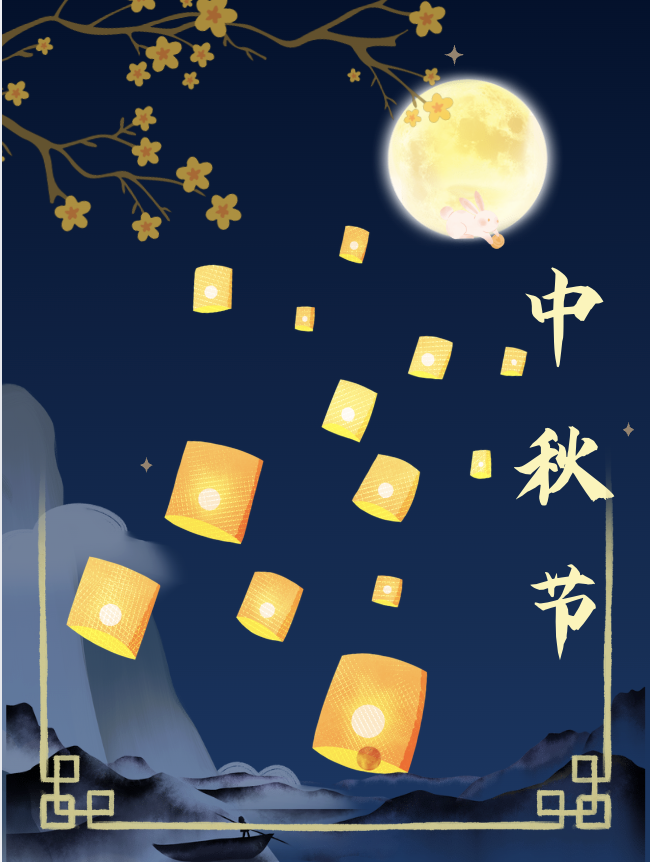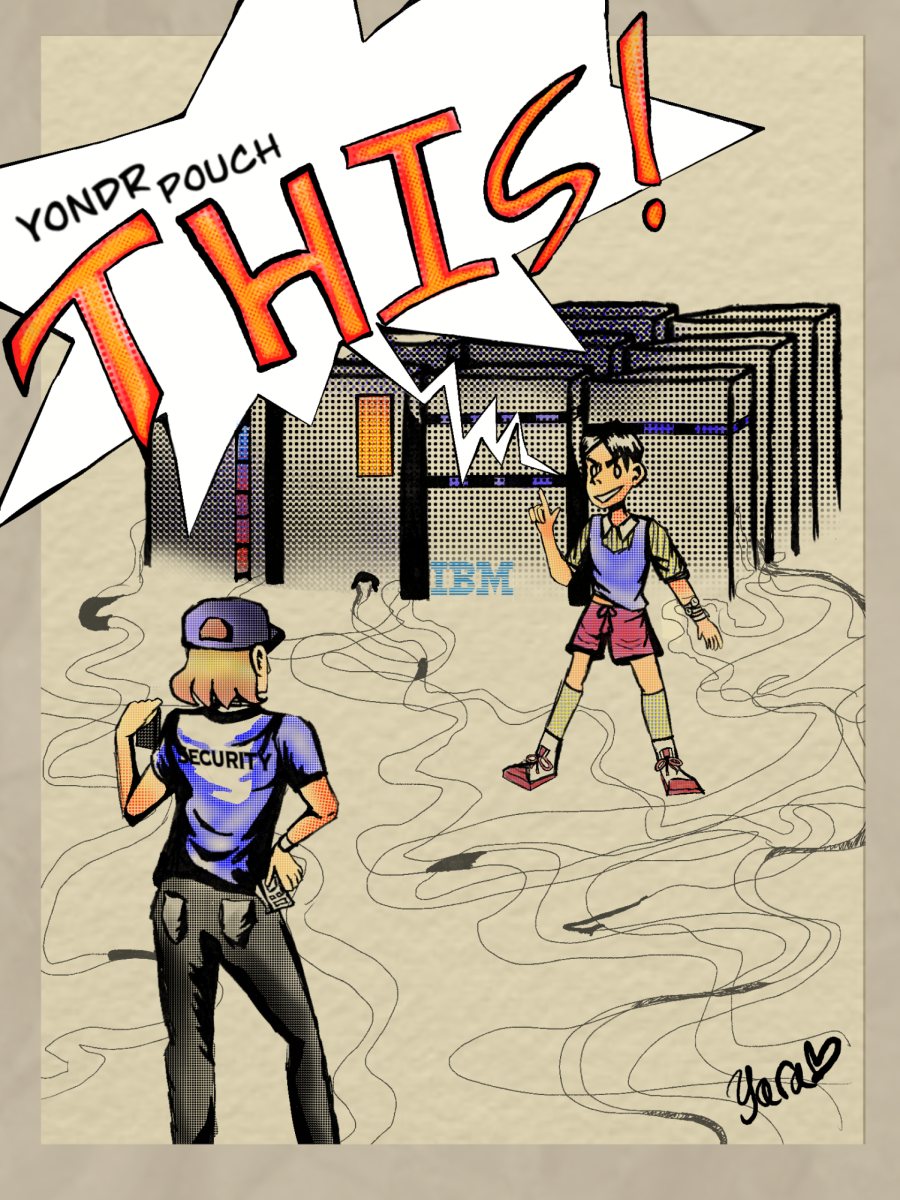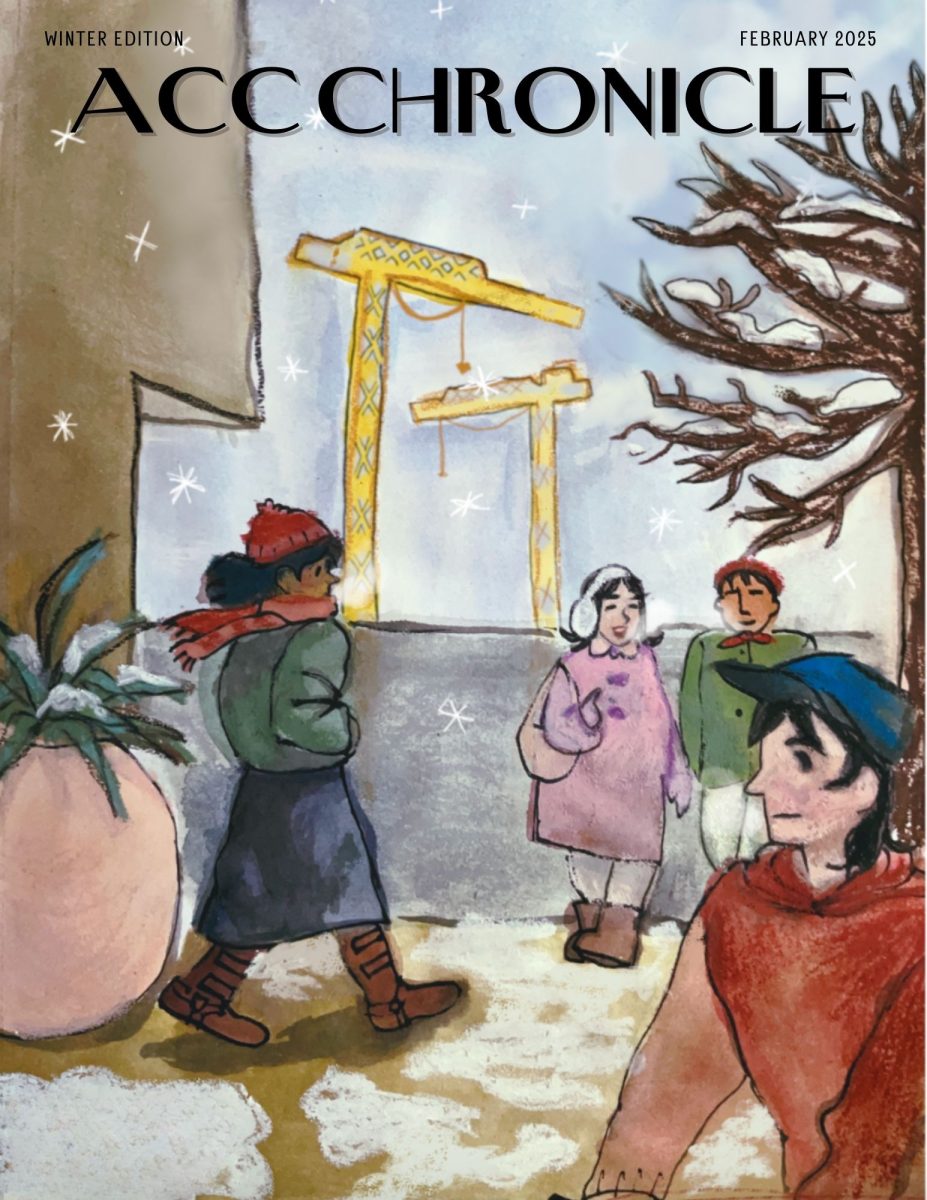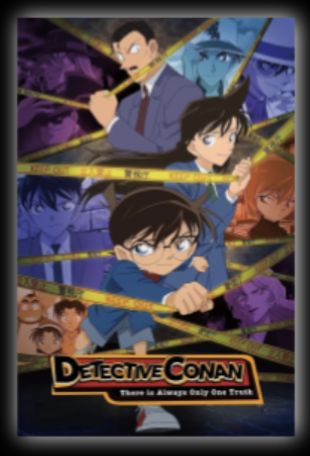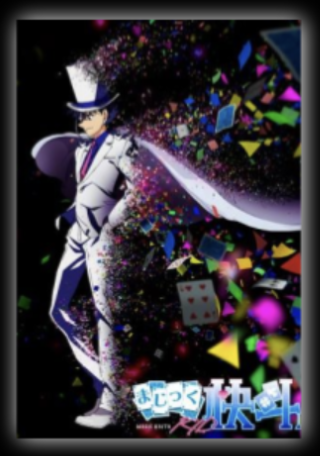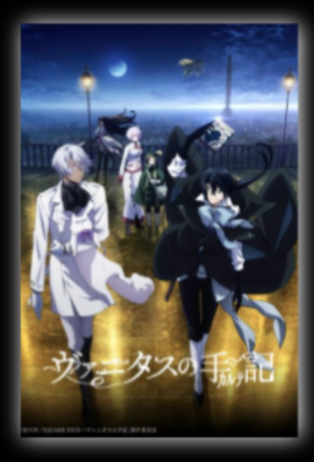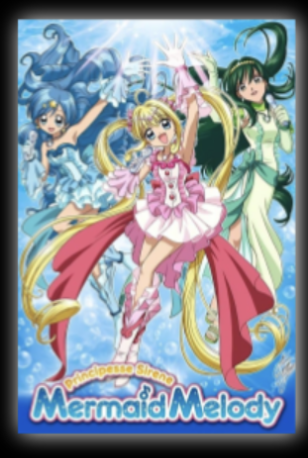Note: Descriptions and summaries are copy-pasted directly from Crunchyroll (paraphrased from Wikipedia when not available). The reviews that follow are intended as humor. Reviews are entirely the author’s opinion, not to be taken seriously, and they do not reflect on the source material or the newspaper as a whole.
Meitantei Conan (Detective Conan; Case Closed): 1110+ episodes
The son of a world-famous mystery writer, Shinichi Kudo, has achieved his notoriety by assisting the local police as a student detective. He has always been able to solve the most difficult of criminal cases using his wits and power of reason. (Author’s note: wow this summary sucks)
This is one of the first anime I watched, so perhaps I’m a bit biased, but this is one of my favorites. It’s incredibly popular in Asia, and the movies have among the highest gross revenue in Japan, but few people in the US have even heard of it. It falls into many cliches, but it has a massive cast full of complex, interesting characters, and creative and even somewhat realistic cases. On the downside, it’s incredibly long and has mostly filler episodes. Episodes that drive the “main plot” are few and far between, and while the filler cases are normally interesting enough to make up for it, this can be frustrating at times.
I would recommend this for people who are:
- Bored and have absolutely nothing to do.
- Capable of keeping track of dozens of characters at a time (I’m not joking, the recurring characters definitely number in the hundreds).
- Into Mysteries (it’s a detective anime, after all).
- Interested in a complex plot and character motives.
I would not recommend this for people who:
- Are sensitive to blood or violence.
- Can’t focus for long periods (the pacing of episodes could be massively improved).
- Are anxious to get an ending (some fans speculate that the manga won’t end until the author dies).
- Want to talk about it with other people (a pretty obscure English fanbase).
Magic Kaito 1412: 24 episodes
When Kaito Kuroba‘s father dies under mysterious circumstances, he finds out his father’s secret identity; a famous international criminal known as International Criminal 1412: the Phantom Thief, and that he was murdered by a mysterious organization for refusing to aid them in retrieving the “Pandora Gem” – a jewel that grants immortality.
He vows to stop the organization from obtaining the gem and assumes his father’s identity. Kaito researches and steals famous priceless gems with interesting histories from incredibly well-defended areas, but always returns them after the next full moon.
This goes hand-in-hand with the first anime. It is set in the same universe but follows a side character. This is honestly a better anime, in my opinion. The story is fairly concise and fast-paced, there is a ton of action, and the characters are constantly getting into funny shenanigans. Some episodes are honestly more fan service than plot, but it’s very well-executed fan service: it doesn’t take itself too seriously and pokes fun at the characters. I would recommend this to pretty much anyone.
I would recommend this for people who are:
- A little busy, but still have some free time (24 episodes is a nice middle ground).
- Want the effects of supernatural tropes without (much) actual supernatural stuff.
- Interested in Detective Conan, but don’t have the time to watch it.
- Fans of unrealistic high school anime (this one pretty much checks all the boxes).
I would not recommend this for people who are:
- Actual magicians (may or may not be offended by the tricks pulled in the show).
- Unable to watch something without finding plot holes.
- Looking for a solid conclusion to the show (a lot is left unanswered in the end on purpose).
- Hate cliches and overused tropes.
Case Study of Vanitas (Vanitas no Carte): 24 episodes
In nineteenth-century France, humans and vampires coexist.
The young vampire Noé is traveling to Paris in search of The Book of Vanitas, which is said to be capable of unleashing a curse upon all vampires. On an airship, he finds himself embroiled in a strange incident. It is Vanitas, a human calling himself a vampire expert, who appears before Noé in the ensuing chaos. In Vanitas’s hands is the very book that Noé has been searching for: The Book of Vanitas…
I’m still watching this one, so I haven’t gotten to the ending yet, but I already love it. The character design is beautiful, the setting is strange but interesting, and so far the plot has been well-paced and engaging. I particularly like the character interactions, simply because they’re funny to watch and each character has a distinct personality, complete with flaws and triggers.
I would recommend this for people who are:
- Interested in the steampunk genre (although the setting is more for aesthetics than the plot).
- Into vampire stories with intricate lore.
- Fairly new to anime (it has some similarities to Western media, but still plays into some typical anime scenes/styles).
- Looking for a quick, engaging watch.
I would not recommend this for people who:
- Are sensitive to violence (not too extreme, but there are frequent fight scenes).
- Dislike keeping track of character backstory.
- Are easily distracted (the plot is very fast-paced, and you’ll quickly get lost if you’re not paying attention).
- Are insistent about correct language pronunciation (sometimes the characters speak French, which, uh… ranges in quality).
Mermaid Melody Pichi Pichi Pitch (Māmeido Merodī Pichi Pichi Pitchi): 91 episodes
Lucia Nanami, the mermaid princess of the North Pacific Ocean, sets out on land to find the boy that she had saved from a tsunami wave seven years before the beginning of the story, to whom she fell in love and had entrusted her pink pearl. She eventually finds the boy: a teenage surfer named Kaito Dōmoto. However, Kaito does not recognize Lucia in her human form.
This is the very first anime I ever watched, at around seven or eight years old. It’s admittedly a silly story, a very typical fantasy romance with magic and mermaids and singing girls, and I definitely wouldn’t give it points for its depth of content or originality. It’s very similar to Sailor Moon (covered in the previous article), and it aired for quite a while too.
I would recommend this for people who are:
- Children (very mild action, pretty mermaids, sparkly magic).
- Trying to entertain children.
- Fans of Sailor Moon (similar art style, similar themes).
- Looking for a lighthearted, not-very-deep show.
I would not recommend this for people who are:
- An edgy teenager.
- Not into the shoujo genre (this is about as stereotypical shoujo as you can get).
- Averse to romance anime (this is very heavy on romantic themes).
- Short on time (not the longest anime, but still pretty lengthy).
Hikaru no Go: 75 episodes
While exploring his grandfather’s shed, Hikaru Shindo stumbles across a Go board haunted by the spirit of Fujiwara-no-Sai, a Go player from the Heian era. Sai wishes to play Go again, having not been able to since the late Edo period when his ghost appeared to Honinbo Shusaku, a top Go player of that period. Sai’s greatest desire is to attain the Kami no Itte—a perfect move. Because Hikaru is the only person who can perceive him, Sai inhabits a part of Hikaru’s mind as a separate personality, coexisting, although not always comfortably, with the young boy.
This anime has been on my to-watch list for at least three years now, and only recently have I watched the first episode. It’s quite unique in its premise, especially as shounen anime nowadays tends to focus more on athletic sports. Still, the start is pretty generic: the “dumb” kid finds a magical object that grants him a cool power to be good at a cool new activity. I think it has good potential, and if I could find the time to get past the beginning, it would be a good anime to get invested in.
I would recommend this for people who:
- Are okay with older art and voice-acting styles.
- Like supernatural mentor figures (that don’t even die in the end! I think.)
- Like sports anime tropes without traditional sports.
- Are interested in Go (or Weiqi) but don’t want to use energy to learn it.
I would not recommend this for people who:
- Are easily annoyed by the voice acting in older anime.
- Are nitpicky about accurate depictions of games (not sure why you’d go to anime for that, but here we are).
- Don’t like supernatural elements in modern settings.
- Require life-or-death situations to get invested (how dangerous does a board game get?)













